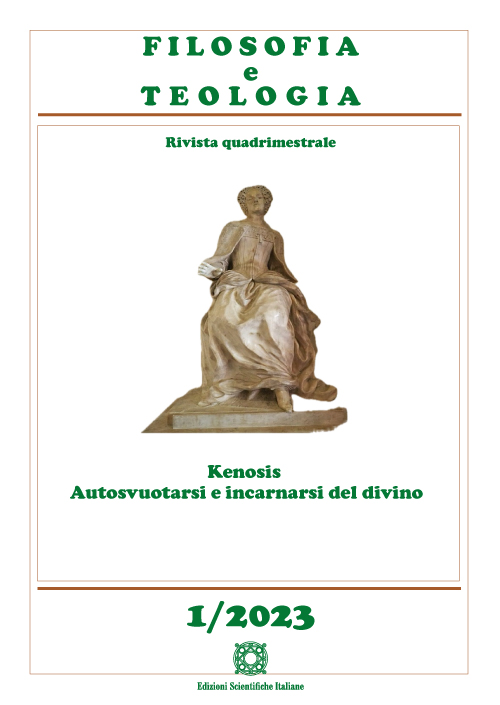Filosofia e Teologia XXXVII, 1 (2023), Kenosis. Autosvuotarsi e incarnarsi del divino, pp. 41-55
L’incarnazione del divino non è accettata da tutte le religioni, anzi per alcune l’ammettere che ciò avvenga è considerato uno scandalo, perché tra il divino e l’umano c’è una dissomiglianza che non tollera alcuna somiglianza. Per affrontare la discussione su questo argomento nel testo si propone un percorso che va dall’indagine antropologica, che consente di comprendere il senso dell’esperienza religiosa, all’indagine sulla storia delle religioni, movendo da quelle arcaiche fino agli ultimi esiti del cristianesimo. La via filosofico-antropologica e quella storica sono riunite in un’unica disciplina: si tratta di una nuova proposta di una “fenomenologia della religione” che rivisita il contributo di Gerardus van der Leeuw integrandolo con i risultati delle analisi di Edmund Husserl e Edith Stein. Esaminando il contrasto fra il “Dio vicino” che sostiene l’incarnazione e il “Dio lontano” che la esclude, si portano ragioni a favore della sua accettazione.
The Incarnation of the Divine is not accepted by all the religions, more than that for some of them it is scandalous to admit it, in fact between the human and the divine there is a dissimilarity so that it is impossible to consider any similarity. To afford such a question in the essay I start from the anthropological research in order to explain the sense of the religious experience and at the same time I consider the history of the religions from the archaic ones as far as the last interpretations of Christianity. The two ways, the anthropological one and the historical one, are linked up in one subject, that is a new perspective of the “phenomenology of religion”. Visiting once again the contribution of Gerardus van der Leeuw I join the results of his research with the analyses of Edmund Husserl and Edith Stein. I examine the contrast between “God near us”, that is the faith in His Incarnation and “God far from us”, that is the refusal of His Incarnation, trying to prove the accomplishment and the value of Incarnation.

